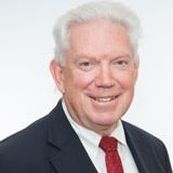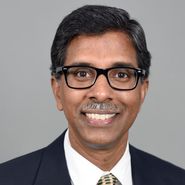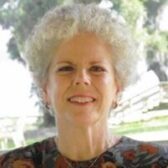Travel survey methods for behavioral analysis
A Four-Day TOMNET Workshop
Workshop Schedule
Start: December 10, 2018 at 1:00 PM
End: December 14, 2018 at 12:00 Noon
Location: Arizona State University, 660 S College Avenue, College Avenue Commons (CAVC) Room 559, Tempe, Arizona 85281
Registration Deadlines
Early Bird – Extended through December 5, 2018; Onsite – After December 5
Registration for the workshop is handled online via credit card payment. If you or your organization needs an invoice to make the payment, please contact any of the individuals listed at the bottom of this web page for assistance. Alternative payment methods may be accommodated by special request. Workshop EARLY BIRD registration fees are as follows (valid through December 5):
- Regular Fee: $1,495
- Reduced Fee (Public Agencies, Universities, Government): $995
- Full-time Student Fee (Proof Required): $495
- TOMNET Sponsors: $195 (Please see here for list of TOMNET sponsors)
- TOMNET Partners: $495 (Please see here for list of TOMNET partners)
Rates will increase by $200-$300 after December 5. Discounted rates are available (on the Regular Fee only) for group registrations of three or more individuals from the same organization.
Workshop Sponsorship opportunities are available too.
For workshop sponsorship information and benefits, please contact Sara Khoeini at [email protected].
Workshop Description
TOMNET is offering a four-day workshop on survey methods and data exploration for behavioral analysis. Sample surveys continue to constitute the main source of information about attitudes and behaviors of agents, including people and firms. Transportation professionals rely on a number of different types of surveys to collect detailed and up-to-date information about activity-travel patterns, movements of goods and services, transit usage, multimodal access and egress modes, and special event traffic. Surveys are often used to assess value of time, willingness-to-pay, and likely behavioral patterns that may emerge as a result of a change in the transportation system. This workshop will introduce participants to all aspects of the conceptualization, design, administration, and quality control of sample surveys. The workshop includes a detailed treatment of sampling methods, design of survey instruments, conducting pilot surveys and pretests, and how to administer surveys in cost-efficient ways while maintaining strict survey ethics and robust quality control protocols. The workshop will also provide extensive coverage of how to assess data quality and integrity, weight data using state-of-the-art multi-dimensional iterative methods to correct for non-response bias, and archive and document data (including metadata) in ways that protect confidentiality of human subjects. The workshop will address issues of experimental design, particularly in the context of stated preference surveys that aim to measure behavior under hypothetical scenarios. The workshop includes modules on methods for performing exploratory data analysis including, but not limited to, multiway analysis of variance, cluster analysis, and factor analysis. The course will cover rigorous methodologies to calculate response rates, assess non-response and sampling bias, and weight the data. Technology-based data collection mechanisms including internet surveys, GPS-based travel surveys with prompted recall, and smartphone based passive and active survey methods are also extensively discussed in the workshop. Guest speakers will provide participants an appreciation for real-world experience in the collection of sample survey data using different methods and technologies.
Workshop material is extensively drawn from the best selling book “Collecting, Managing, and Assessing Data Using Sample Surveys” by Professor Peter Stopher, published by Cambridge University Press in 2012. All course participants will receive a complimentary copy of this book as part of their course registration fee payment.
Please note that this is an interactive workshop intended to provide a rich learning experience for participants. Workshop attendees will participate in a number of hands-on exercises including design of sampling plans and survey instruments, and calculation of sample sizes, response rates, non-response biases, weighting and expansion factors, and descriptive statistics. All participants are requested to bring a reasonably up-to-date laptop computer and ensure they have full administrative rights on the machine to install software (R, R Studio, Python, and PopGen).
Instructor

Prof. Peter R. Stopher
The primary instructor of the workshop is Professor Peter R. Stopher, an internationally renowned expert and authority in transport survey methods, disaggregate travel demand forecasting, and modeling traveler behavior and values. Professor Stopher is Emeritus Professor at the Institute of Transport and Logistics Studies at the University of Sydney, a position he has held since the beginning of 2015. Prior to his retirement, he was Professor of Transport Planning at ITLS from 2001 to 2014. He was educated at the University of London, where he received both his BSc (Eng) in Civil Engineering and PhD in Traffic Studies. He has been a professor at Northwestern University, Cornell University, McMaster University, and Louisiana State University, where he held the endowed chair of the Louisiana Land and Exploration Company and served as Director of the Louisiana Transportation Research Center (LTRC). Prof. Stopher has 50 years of professional experience in transport planning, travel forecasting, travel behavior modelling, and associated areas. He has an international reputation in travel demand modelling, and the development of new procedures for travel forecasting. He was one of the pioneers of the development of disaggregate travel-demand models, applying the logit model in the 1960s. He was a founding member of the Transportation Research Board’s Committee on Traveler Behavior and Values, serving as its first Chairman from 1971-1977, and again from 1995-1997 and was awarded Emeritus Membership of the Committee in 2002; he also founded the series of International Conferences on Traveler Behaviour that began in 1973 and is held every three years. Dr. Stopher is the foremost expert in the field of sample surveys and data collection, particularly for the support of travel forecasting and analysis. He pioneered the development of travel and activity diaries as a data-collection mechanism, and has also written extensively on issues of sample design, data expansion, non-response biases, and measurement issues. He is the lead author of the NCHRP Report 571 on standards for household travel surveys, and has extensive experience in the use of GPS devices for personal travel surveys and evaluation of voluntary travel behaviour change. Dr. Stopher initiated the Transportation Research Board (TRB) Subcommittee on Survey Methods, which later became a full-fledged committee that elected him to Emeritus status in recognition of his vast body of work and contributions to the field of survey research. He served as co-chair for three of the International Conferences on Transport Survey Methods (1997, 2001, and 2004). Dr. Stopher has published around 280 articles including book chapters, and papers in journals and conference proceedings. He has authored eight books and edited a further seven books, all of which are considered classic references in the field.

Dr. Ram M. Pendyala
Dr. Ram M. Pendyala, Professor of Transportation Systems in the School of Sustainable Engineering and the Built Environment at Arizona State University and Director of TOMNET, will also serve as a key instructor for the course having taught a graduate level course in travel survey methods and data exploration for nearly two decades at a number of institutions. Dr. Pendyala has 25 years of experience in travel demand forecasting and travel behavior modeling, and is internationally recognized for his contributions in the development and deployment of microsimulation approaches for predicting activity-travel patterns under a wide variety of scenarios. He has published extensively in the literature and has served as the Chair of the Transportation Research Board Planning and Environment Group (2015-2018), Travel Analysis Methods Section (2009-2015), and Traveler Behavior and Values Committee (2003-2009). He has also served as the Chair, Vice-Chair, and Secretary/Treasurer of the International Association for Travel Behaviour Research (IATBR). Dr. Pendyala has extensive experience in the design of travel surveys and sampling strategies, and has conducted a number of activity-travel surveys (including a unique university travel survey) in the recent past. He is an expert in the application of rigorous analytical procedures to weight and expand travel survey data, and will be demonstrating the application of PopGen (a synthetic population generator) as a survey weighting tool. Dr. Pendyala has applied statistical and econometric approaches to transportation data analysis, and will lead workshop participants through hands-on computer exercises in cluster analysis, factor analysis, and analysis of variance using real-world travel survey data sets.
Invited Speakers

Prof. Patricia Mokhtarian
Prof. Patricia Mokhtarian will provide a special lecture on attitudinal surveys and data. She is a Professor at Georgia Tech, renowned for work in travel behavior analysis.

Dr. Venu M. Garikapati
Dr. Venu M. Garikapati is the Transportation Data Project Lead at NREL and will deliver a special presentation on the Transportation Secure Data Center (TSDC) hosted by NREL.

Dr. Vladimir Livshits
Dr. Vladimir Livshits is Director of Transportation Technologies and Services at Maricopa Association of Governments. He conducted the smartphone based MAG household travel survey.
Workshop Agenda
The workshop offers a comprehensive and state-of-the-art/practice coverage of all aspects related to design and administration of transport surveys, sampling procedures, and exploratory data analysis. The workshop content is organized as follows:
|
Day
|
Topics/Agenda
|
|
Day 1
|
Definitions
Need for survey data/methods Census vs survey Random vs Representative Ethics in surveys Errors and bias Elements of survey design Elements of instrument design Establishing study objectives Identifying question content Types of surveys |
|
Day 2
|
Survey format and layout
Survey design issues Preparing respondent instructions Preparing interviewer instructions Writing questions Sampling frames Sampling procedures Sample size calculations Simple random sampling Proportionate sampling Disproportionate sampling |
|
Day 3
|
Multistage sampling
Longitudinal surveys/data Panel vs repeated cross-sectional Survey economics and costs Non-response and related issues Pretests and pilots Non-response surveys Data Imputation Technology applications (GPS, Smartphone, Web-based, and social media applications) |
|
Day 4
|
Data weighting and expansion
Using PopGen for weighting Data security and confidentiality Archiving/sharing data Data documentation Survey Case Studies Future directions |
Workshop Logistics
The workshop will be held in College Avenue Commons (CAVC) (Room 559), a state-of-the-art collaborative learning environment that is home to TOMNET and the School of Sustainable Engineering and the Built Environment at Arizona State University on the Tempe Campus. The building is located at the northwest corner of S College Avenue and E 7th Street. The official address of the building is 660 S College Avenue, Tempe, Arizona 85281, USA. Parking is available in the Fulton Parking Garage, located just across from CAVC at the same intersection. The building may also be accessed by light rail, with a light rail station located just a short walk away at the intersection of S College Avenue and Veterans Way. This light rail station is located at the Tempe Transportation Center.
A map showing the location of the building, parking garage, and light rail station is available here.
Travel and Accommodation
Tempe is located in the Greater Phoenix Metropolitan area. Arizona State University is located just 15-20 minutes from Phoenix Sky Harbor International Airport. An alternative airport is the Phoenix-Mesa Gateway Airport. Travelers coming into Phoenix Sky Harbor International Airport will be able to use the light rail to reach the workshop venue. Alternative ground transportation options including ride-hailing services (Uber, Lyft), regular taxi services, and Supershuttle services are also available. Travelers wishing to rent a car should follow the signs to the Rental Car Center; all major rental car companies serve the Greater Phoenix market.
Accommodation is available for participants in a number of hotels located within a short distance of the workshop location, and all along the light rail line. Workshop participants are responsible to make their own hotel accommodation arrangements. Accommodation is also available through AirBnB, VRBO, HomeAway, and other vendors. A list of candidate hotels is available here.
Contact
For information and assistance, please contact any of the following:
| Sara Khoeini Assistant Director, TOMNET Ph: 480-965-5047 Email: [email protected] |
Ram M. Pendyala Director, TOMNET Ph: 480-727-4587 Email: [email protected] |
Workshop (Pre)Registration (closed)
We are requesting pre-registration so that we have an estimate of number of attendees and can plan/prepare accordingly. All workshop registrants will receive a binder of course materials and the book authored by Stopher. Please provide the information requested in the form as accurately as possible.